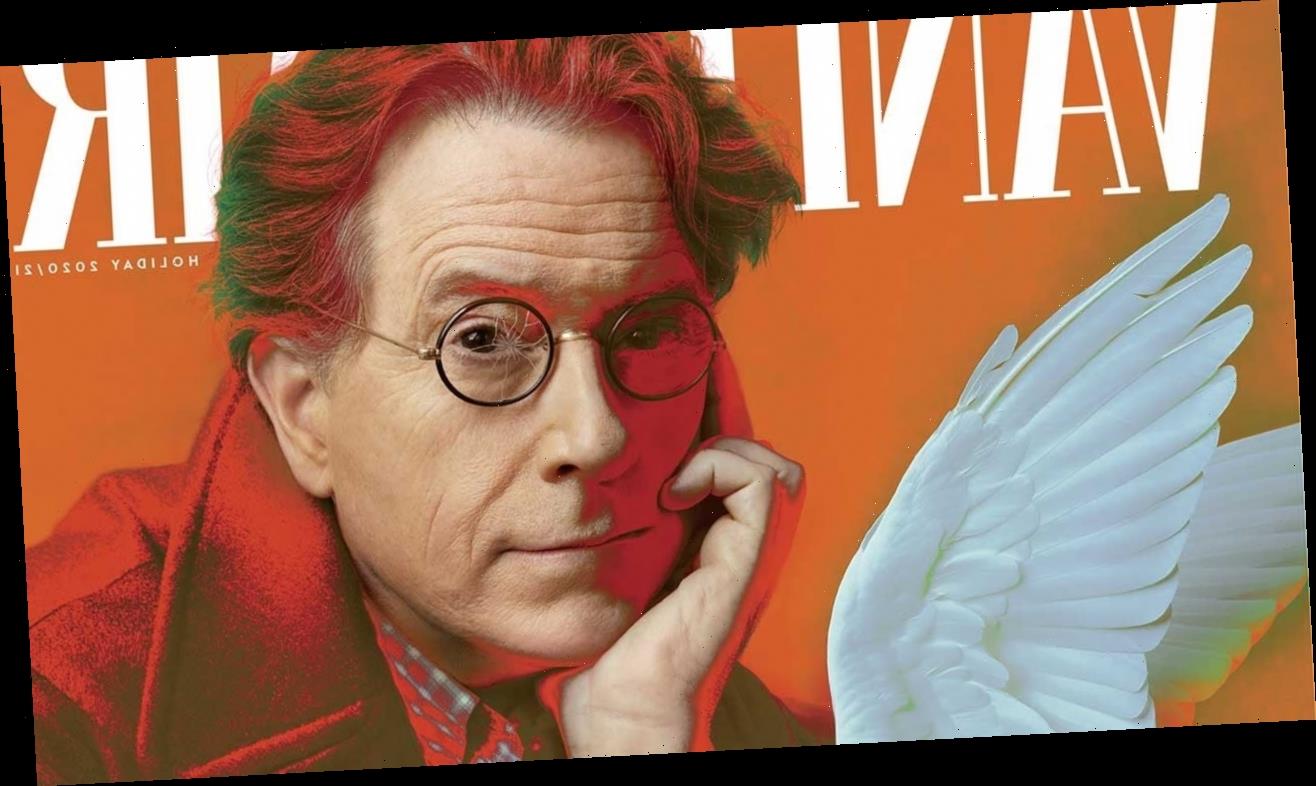Stephen Colbert is living with benign positional vertigo. The Late Show host covers the holiday issue of Vanity Fair and reveals that he developed the condition a week before the presidential election, shortly before this interview took place.
According to Mayo Clinic, benign positional vertigo often has no cause and includes symptoms like dizziness, nausea and a loss of balance. For Colbert, it means when he stands “the world goes off-kilter.”
“It’s almost entertaining, until I forget, and then I go to stand up, and then I just fall down,” he says. “So, I’m coming to you right now from a very weird angle, slightly listing to port.”
Colbert’s vertigo condition is just one of many new things that he has had to face in 2020. Most drastically, perhaps, was the temporary move of Late Show from its New York City studio to the host’s Charleston, South Carolina, home amid COVID-19.
With quarantine precautions in place at the time, it fell to his family — wife Evie and children Peter, John and Madeline — to help him put on the show from home — complete with headsets, an iPad teleprompter and overworked laptops.
“It felt much like the 19th century,” Colbert quips. “Daddy’s got a woodshop, and the kids are going to come in and help me cut the pine today.”
He has since returned to filming at Ed Sullivan Theater in New York City, where he shoots the show from an office rather than from a stage.
“The stage is only there to present a show to a live audience,” he says. “That’s the only purpose of the stage. And it’s some weird lie to be onstage without the audience.”
While Colbert found the new way of filming “terrible” at first, he eventually found some upsides, like leaning into more emotional moments — crying when Dolly Parton sang, for instance — and delving further into serious topics, such as speaking out against President Donald Trump’s unfounded claims of a fraudulent election.
“Individuals at home or in small groups can receive this material in a much more raw state. You can get as dark as you want within your own ethical guidelines, without the concern of how you kill the vibe of a room,” he explains. “As much as I want my audience back, and I desperately do, it would be extremely difficult to talk about what’s going on in the world right now to a group of people who normally have a party atmosphere.”
Though Colbert has adjusted to, and even embraced, the new normal, he can’t help but picture what work will look like once a COVID-19 vaccine is approved and distributed.
“The first thing I picture is I have an audience and Jon Batiste and the Stay Human Band are there. And our offices are buzzing every day and we’re all passing each other in the halls and saying, ‘Did you see this story?’ and ‘How was your weekend?'” he says. “And we’re laughing and we’re hugging and we’re friends hanging out, which is what we are.”
Source: Read Full Article

